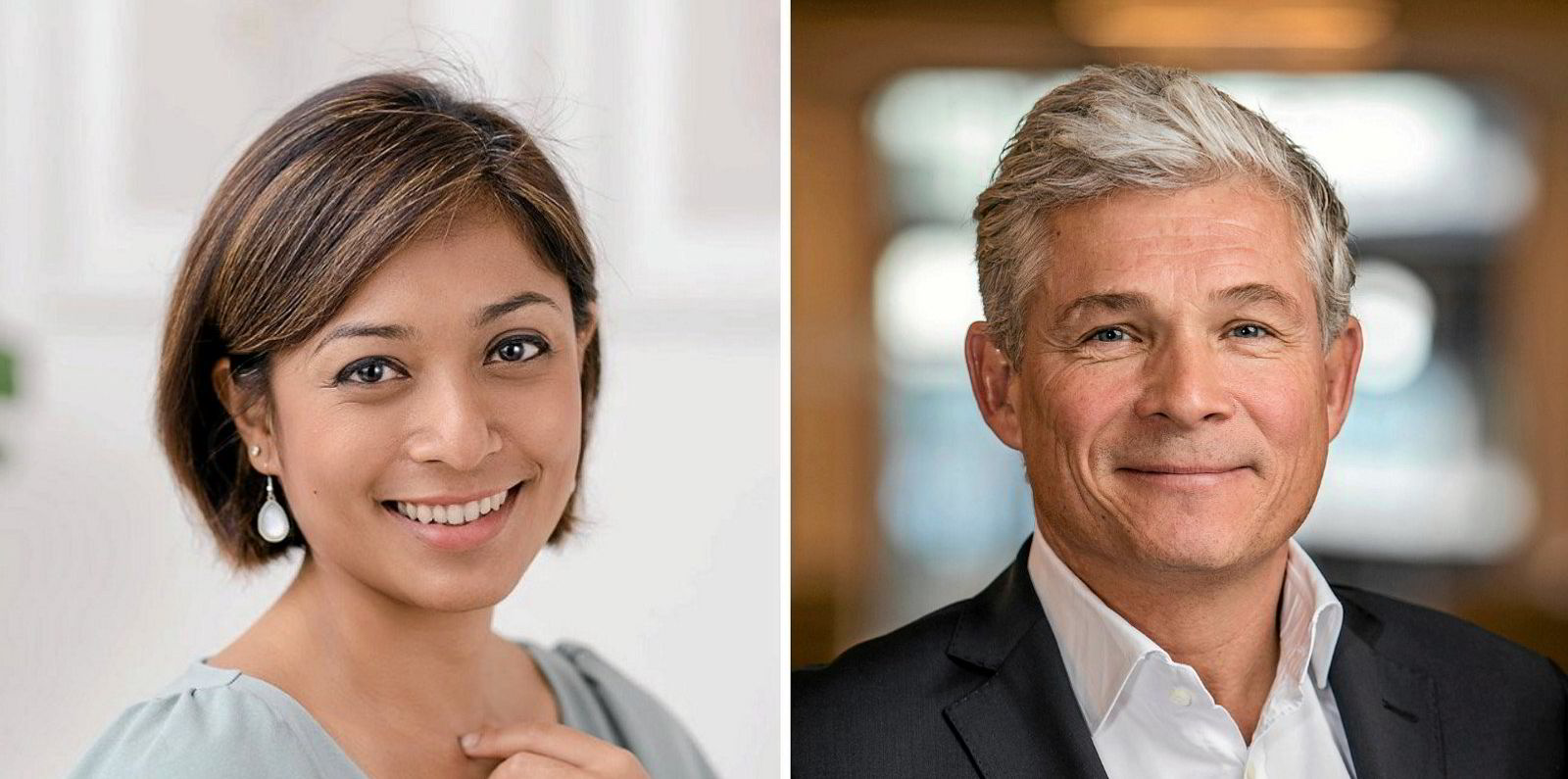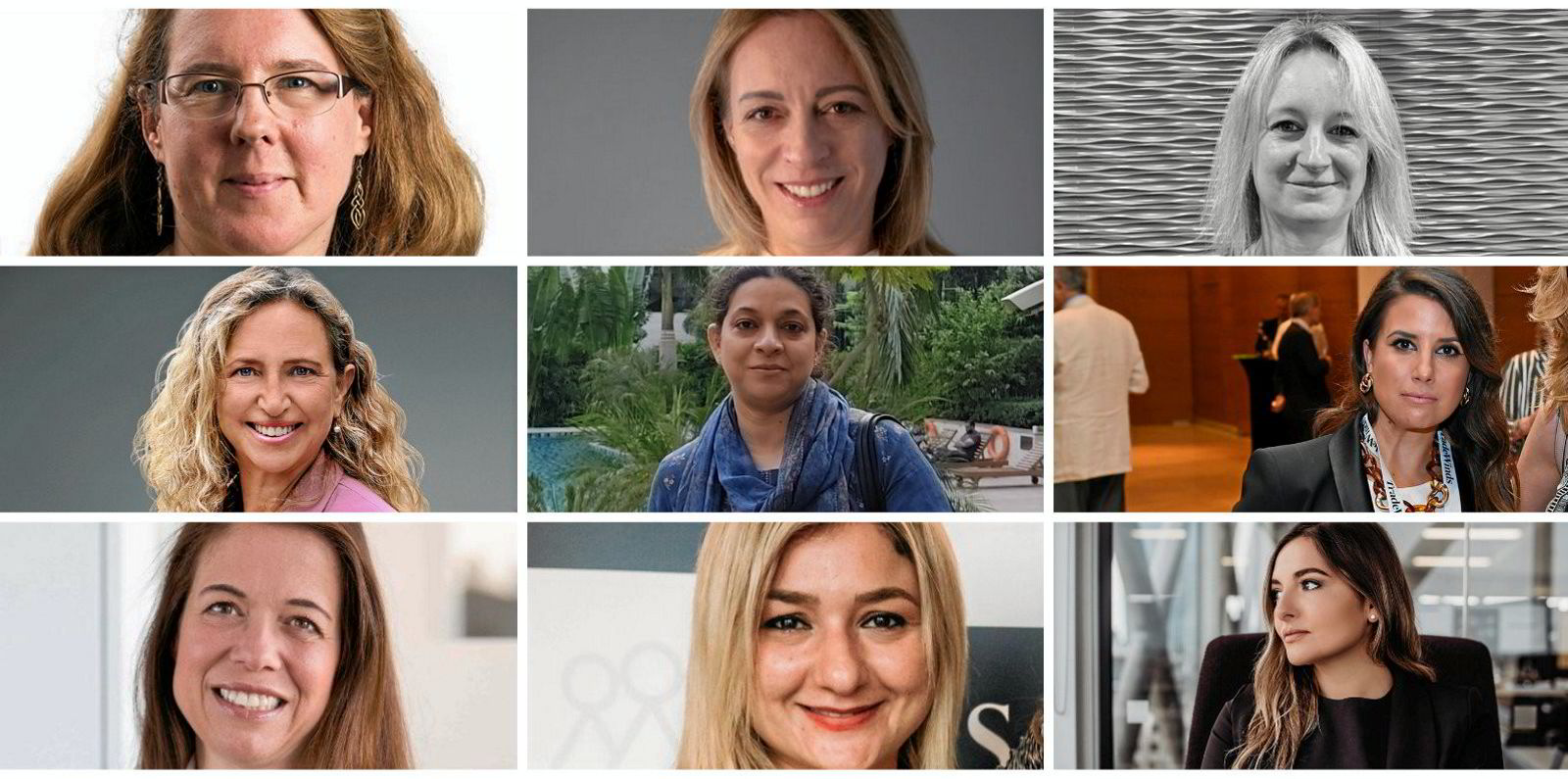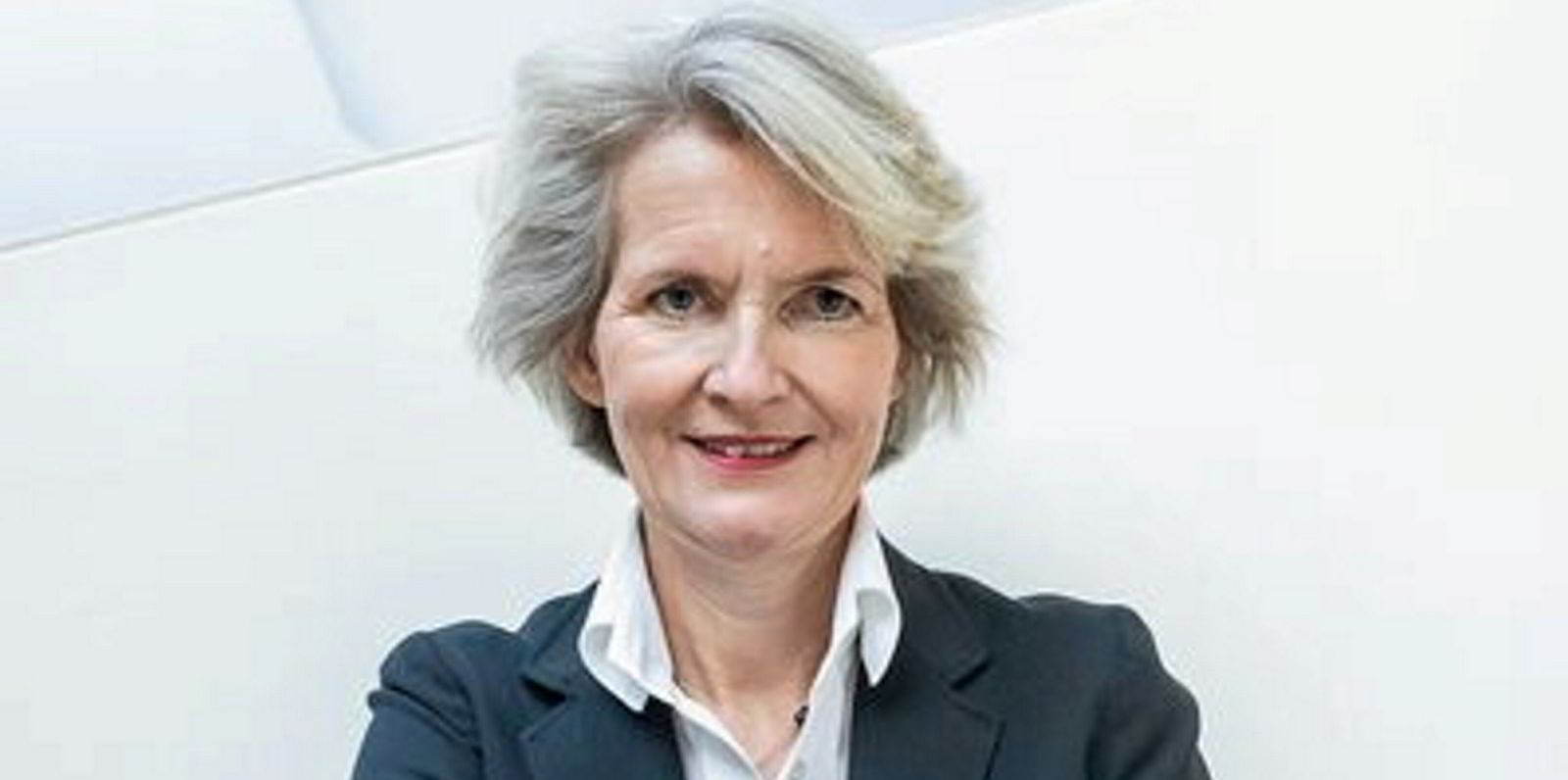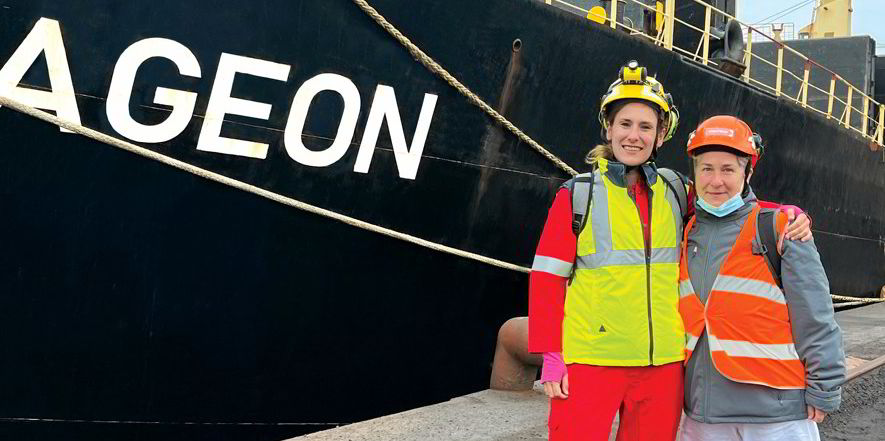Shipping leaders met in Zurich on Tuesday to launch the All Aboard Alliance, a platform for collaborative action to attract new talent to the industry by making it more diverse, equitable and inclusive.
The platform’s membership comprises 27 companies from across maritime value chains.
Its co-chairs are Su Yin Anand, head of shipping at Australian miner South32, and Mikael Skov, chief executive of tanker owner Hafnia.
Anand, who previously was a partner at law firm Ince & Co in Hong Kong, said: “I do feel very passionately about DE&I [diversity, equity and inclusion] and I think that this is a great initiative, primarily because I’ve managed to achieve what I have achieved today because I’ve benefited from living in and working in an inclusive and diverse environment.”
The alliance has evolved from the Global Maritime Forum initiative.
Members of the forum realised that more needed to be done on DEI and it was decided that the way forward was through “high-level community action” to determine what needs to be addressed and how, according to Susanne Justesen, who leads the forum’s diversity and inclusion workstream.
This includes stepping up the industry’s efforts to expand the talent pool as demographics change and competition increases as the world gradually exits the Covid-19 pandemic.
“It is imperative at this pivotal time, where a diversity of skills and competencies is paramount to innovating our way through the continuous evolution and developments in decarbonisation, digitalisation and automation,” Skov said.
Member companies of the alliance will commit to reporting their progress each year.
Each member must appoint a “business sponsor” to lead DEI work within their organisation.
They will also commit to educating and equipping people within their organisation, from top to bottom, to understand their role in creating a diverse, inclusive workplace.
Each company will also collect relevant data and insights that can be used to evaluate progress and develop new targets.
The S in ESG
The alliance hopes its work — such as its members’ commitments to annual reporting and data collection — will also lay a foundation for formalising how organisations report the work they are doing on “social” issues.
This would sit alongside the similar work shipping companies are doing to demonstrate their environmental performance to prospective clients.
Skov said there is an “inherent incentive” for maritime firms in being more transparent around their DEI work.
“What we are trying to do here will have a positive effect on all of our businesses,” he said.
“It’s not about just trying to tick the box and put it in the corner. It’s factually proven that if we can get this going, the companies that will join us on this path will end up having better decision making and be much, much better prepared for an industry that’s going into a transition period.”
But any meaningful effort to improve DEI in maritime will need to tackle difficult issues, such as mistreatment stemming from sexism, racism, homophobia and other prejudices.
Johannah Christensen, CEO of the Global Maritime Forum, said the alliance’s initial work will be to identify and prioritise the needs of the workforce, to understand how to address sensitive issues.
“I think there’s a really important signal also in saying we understand that there are also difficult issues and we want to make sure that we’re creating the space for those to be tackled,” she said.
“I hope it will act as a powerful signal to the wider ecosystem — including those that might work for Mikael or who might work on board vessels that Su Yin’s company charters — that there’s a genuine desire to tackle even the most difficult issues, and that it does open up a space for raising things that might otherwise have been brushed under the carpet or that might otherwise be difficult to tackle or difficult to talk about.”
Anand foresees that the work being done now will not create meaningful change for years, but she remains pragmatic.
“We can’t change the ingrained culture in companies — that will definitely take time,” she said.
“But I think what we would aim to do is to influence conversations and influence thought leadership in this area, so that people can start thinking about what it means for them and how focusing on this can bring out the best not only in them, but the best in the industry.”







